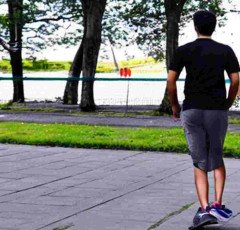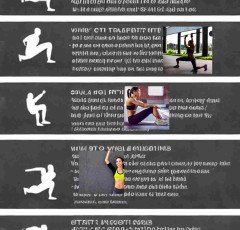Of course, stress management is vital for overall well-being. Here are some relaxing strategies with full descriptions to assist you in efficiently reducing stress:
Deep Breathing Exercises
Deep breathing exercises might help you activate your body's relaxation response. Find a quiet place where you can sit or lie down comfortably. Deeply inhale through your nose, allowing your abdomen to rise, and slowly exhale through your mouth. Concentrate on your breathing and let go of any racing thoughts. Repeat for a few minutes, or until you feel more at ease.
Progressive Muscle Relaxation is a technique that entails tensing and then releasing various muscle groups in your body. Begin with your toes and progress to your head. Hold the tension in each muscle group for a few seconds before releasing. This aids in the release of bodily tension and promotes relaxation.
Mindfulness Meditation is the practice of giving nonjudgmental attention to the present moment. Locate a peaceful spot to sit or lie down. Close your eyes and concentrate on your breathing or a specific sensation, such as the sensation of your feet on the ground. When your thoughts begin to wander, gently bring them back to your chosen focal point.
Close your eyes and imagine a relaxing setting, such as a beach, a forest, or a tranquil meadow. In this visualization, use all of your senses to imagine the sights, sounds, and even scents of the area. This might move your thoughts to a state of relaxation.
Aromatherapy, Certain smells, such as lavender, chamomile, and citrus, help relax your nervous system. Infuse your atmosphere with these relaxing smells by using essential oils, scented candles, or diffusers.
Regular physical activity, such as jogging, yoga, swimming, or dancing, is recommended. Exercise releases endorphins, which are natural mood lifters, and aids in the release of tension.
Progressive Relaxation Lie down, in a comfortable position and gradually focus on different body areas. Release any tension you may be holding, beginning with your toes. Relax your legs, chest, arms, neck, and head as you move up through your body.
Nature Walks, Take leisurely walks in a park or natural location to spend time in nature. Take in the scenery around you, listen to the sounds of birds and rustling leaves, and feel the relaxing affects of nature.Journaling, Keep a journal to record your ideas and feelings. This allows you to digest your emotions and get perspective on stressful situations. It can also be a means of creative self-expression.Spend time with friends, relatives, or supportive people who make you feel appreciated and understood. Sharing your thoughts and feelings with others can bring you comfort and a sense of belonging.Finding the appropriate relaxation techniques, for you may necessitate some trial and error. Making relaxation a regular component of your routine, even when you're not worried, is critical for building resilience against stress over time.Music & Sound Therapy, Listen to soothing music, nature sounds, or even binaural beats to encourage relaxation. Choose sounds that speak to you and help you relax.
Drawing, painting, writing, and crafting are all examples of creative pursuits that can be soothing. These hobbies can assist you in expressing your feelings and diverting your attention away from worries.Laughter Therapy, See a hilarious movie, TV show, or stand-up comedy show. Laughter causes endorphins to be released, which can boost your mood and reduce stress.Limit Screen Time, Limit your screen time, especially before night. Blue light from devices might disrupt your sleep and add to stress. Instead, do something peaceful like read a book.Hydration and nutrition, Drink enough of water throughout the day and eat a nutritious diet rich in fruits, vegetables, whole grains, and lean meats. Proper nutrition helps your body's ability to deal with stress.Warm Bath or Shower, A warm bath or shower can assist to relax stiff muscles and calm your mind. For an extra relaxing experience, consider adding Epsom salts, fragrant oils, or bath bubbles.Yoga & Stretching, To relieve physical tension and promote relaxation, practice gentle yoga positions and stretching activities. Yoga is a holistic relaxing practice that blends breath and movement.Limit coffee and Sugar Consumption, Too much coffee and sugar might add to emotions of worry and tension. Moderation in your consumption can aid in mood stabilization.
Maintain a thankfulness journal in which you write down things you're glad for each day. Focusing on the positive aspects of your life can help you shift your focus away from difficulties.
Establish Boundaries, Learn to say no when you are feeling overburdened by commitments. Setting appropriate limits allows you to devote time to self-care and relaxation.
Breathing Exercises, Experiment with various breathing exercises, such as box breathing or 4-7-8 breathing. These approaches can help to calm your nervous system and relieve tension immediately.Disconnect from Technology, Take pauses from emails, social media, and work-related chores on a regular basis. Allow yourself time to disconnect and recharge away from continual digital stimulus.
Mindful Eating entails paying attention to your eating experience.
Slowly chew, appreciate the flavors, and eat without interruptions. This can assist you in connecting with your senses and decreasing stress-related overeating.
Visualization and Positive Affirmations, Imagine yourself succeeding, reaching your goals, or conquering obstacles. Combine this with positive affirmations to cultivate a more optimistic mindset.
Professional Assistance, If stress becomes overwhelming, seeking the assistance of a mental health professional such as a therapist or counselor can provide helpful tools and support.
Because everyone's preferences and demands are different, try out different strategies and combinations to see what works best for you.
Integrating relaxation activities into your routine on a regular basis can have a significant impact on your ability to manage stress and improve your general quality of life.
Breath Awareness Meditation, Concentrate exclusively on your breath, noting its natural rhythm but not attempting to control it. This sort of meditation can help you stay present and relax your thoughts.
Sensory Relaxation, Relax by engaging your senses. Try caressing a soft piece of fabric between your fingers, listening to relaxing music, or sipping a cup of herbal tea to relax.Apps for Guided Relaxation, There are various mobile apps that provide guided relaxation sessions. These apps frequently offer a range of strategies, making it simple to choose something that appeals to you.Cognitive behavioral techniques, include detecting illogical ideas and replacing them with more rational and positive beliefs. This can aid in the relief of stress produced by incorrect thinking.Breath Counting, Inhale deeply and count each breath, paying close attention to the count. This technique aids relaxation by keeping your mind from wandering.Self-Massage, Using lotion or oil, gently massage your hands, feet, neck, and shoulders. Gently pressing these places can help to relieve tension and promote relaxation.Engage in Hobbies, Make time for activities that you enjoy, such as gardening, cooking, playing an instrument, or any other passion that offers you joy.Practice Mindful Walking, Take a gentle walk outside, paying attention to each step. Feel the earth beneath your feet and take in the sights, sounds, and smells that surround you.Breath Awareness Throughout the Day, Practice mindfulness by focusing on your breath for a few seconds throughout the day. This can aid in the prevention of stress.
Spend quality time with friends and family, engaging in meaningful conversations and activities that make you feel supported and connected.
Prioritize Sleep, Create a consistent sleep pattern to ensure you get adequate restful sleep each night. Sleep deprivation can worsen stress, so prioritize it.
Consider employing biofeedback devices, which record physiological reactions such as heart rate and skin conductance. These devices can assist you in learning to control your stress responses.Breathing Through a Straw, Take slow, deep breaths in and out of a straw, focusing on the sensation of the airflow. This can help you calm down your breathing and relax.Volunteer or Help Others, Acts of compassion and helping others can improve your mood and sense of well-being, reducing stress.Acceptance, Recognize that some stressors are beyond your control. Learning to let go of what you can't alter might help you relieve a lot of tension.
Stress management is a continual process, so be patient with yourself as you experiment with different relaxation strategies.
Combining numerous tactics and adapting them to your preferences will assist you in developing an effective stress management toolkit that is tailored to your specific needs.
Shinrin-Yoku (Forest Bathing), Spend time in a forest or natural area, immersing yourself in the sights, sounds, and fragrances of nature. This technique has been demonstrated to relieve stress and increase health.
Tai Chi and Qigong are gentle movement techniques, that use mindfulness, meditation, and flowing movements to enhance relaxation, balance, and energy flow.Watch a Sunset or Sunrise, Find a peaceful location to enjoy the beauty of a sunset or sunrise. This simple gesture can be extremely soothing and provide an opportunity for reflection.Squeezing stress balls or playing, with fidget toys might help channel nervous energy and encourage relaxation.Participate in Autogenic Training, This technique entails repeating a sequence of precise sentences that promote relaxation and self-calming. Phrases could include "I am calm" or "my breathing is slow and steady."When feeling overwhelmed, practice grounding techniques by focusing on the sensations of your body hitting the earth or a surface, which helps anchor you to the present moment.Herbal teas, such as chamomile, valerian root, and passionflower, offer relaxing effects that can help relieve stress and promote relaxation.
Disconnect from News and Media: Take regular pauses from continual news updates and social media to limit your exposure to bad or stressful information.
Laughter Yoga, Laughter yoga combines breathing exercises with intentional laughter. Laughter, even if it feels forced at first, can elicit genuine sensations of delight and relaxation.
Patience and self-compassion, Be kind to yourself and recognize that it's normal to experience stress. Self-compassion can be practiced by treating yourself with the same care you would provide to a friend.
Limit multitasking, Concentrate on one task at a time to clear your mind and feel more centered and in control.
Pray, meditate, or engage in other spiritual practices that create a feeling of purpose and connection if you are inclined.
Use peaceful Visuals,Surround yourself with images that are peaceful, whether they are artwork, photographs of serene landscapes, or images that hold happy memories.
Engage in Meaningful Conversations, When interacting with friends or loved ones, engage in meaningful conversations and practice active listening. This close relationship has the potential to reduce stress.Maintain a stress notebook, in which you record your stress triggers, responses, and the relaxation strategies that work best for you. This can assist you in identifying patterns and refining your approach.Relaxation is a skill that must be honed. Incorporating these tactics into your daily routine on a regular basis can help to reduce stress and contribute to a more balanced and meaningful existence. Experiment with different ways, be patient with yourself, and put your health first.
Create a timetable that provides for breaks and leisure to practice time management. Proper time management might help you feel less stressed and overwhelmed.
Set up a tranquil playlist, of your favorite soothing music to play automatically when you need to unwind.
Visit a Spa or Wellness getaway, To truly immerse yourself in relaxation treatments and activities, treat yourself to a spa day or a wellness getaway.Stress-Relief Toys, Squeeze stress-relief toys, such as stress balls or textured objects, to relieve tension and stimulate the senses.thankfulness Meditation, Concentrate your meditation on sentiments of thankfulness. Consider the positive aspects of your life and the things you value.Use Breathing Apps, There are apps that will lead you through various breathing exercises, allowing you to manage stress while on the go.Make a Relaxing Space, Set aside a corner of your home for relaxation. Fill it with soft cushions, soothing colors, and accessories that help you relax.Set Realistic Goals, To avoid undue stress, set feasible goals that can be broken down into smaller, manageable tasks.Hiking or nature exploration, Spend time hiking or exploring natural pathways if feasible. Physical activity combined with nature can be extremely refreshing.Utilize a Stress Management App, There are a variety of applications available that provide guided relaxation, meditation, and stress management strategies.
Accept that perfection is not always possible and that mistakes are a natural element of learning and growth.
This mentality shift, has the potential to lessen self-imposed stress.
Humming or Chanting, Humming or chanting relaxing sounds can relax your nervous system.appreciating Rituals, Practice mindfully appreciating small pleasures like sipping a cup of tea or eating a piece of chocolate, paying attention to the sensory experience.Play, Reconnect with your inner child by engaging in activities such as playing games, swinging on a swing, or building with Lego blocks.Attend a Relaxation Workshop, Look for local or online workshops or events that focus on relaxation techniques, meditation, or stress management.Body Scan Meditation, Lie down and mentally scan your body from head to toe, recognizing and releasing any areas of tension.
Learn to Let Go: Practice letting go of things over which you have no control or influence.
Use the 5-4-3-2-1 Technique,Give five examples of things you can see, four examples of things you can touch, three examples of things you can hear, two examples of things you can smell, and one example of something you can taste. This strategy assists you in staying in the present moment.
Use Progressive Relaxation Imagery, to imagine oneself in a serene environment, such as a beach or a forest. Imagine gradually engaging each sensation, such as feeling the warm beach or hearing the calm waves.Simplify Your Life: To avoid overwhelm, declutter your physical space, prioritize your responsibilities, and simplify your routines.
It takes time and experimentation to find the ideal combination of relaxation techniques.
The goal is to be consistent and gentle with yourself as you establish a customized stress management program that meets your own needs.
Practice Resilience-Building Activities, Engage in activities that aid in the development of resilience, such as maintaining a good attitude, cultivating flexibility, and building problem-solving skills.
Use Visualization Techniques, Create mental scenarios in which you handle stressful events successfully. This can increase your self-esteem and minimize your concern about upcoming obstacles.Create a Bedtime Ritual, To increase your sleep quality, establish a peaceful habit before bed, such as reading, having a warm bath, or performing relaxation techniques.Mindful Breathing Exercises Before Sleep, Before going to bed, do some mindful breathing exercises to calm your mind and prepare your body for rest.Create a Stress Management Plan, Make a detailed plan outlining your favourite relaxation techniques and how you intend to incorporate them into your daily routine.Spend time in nature, with pets or animals to connect with them. Animals' unconditional love and peaceful presence can be extremely comforting.Humor & Comedy, Laughter is a natural stress relief, so watch a comedy show, read a humorous book, or indulge in activities that make you laugh.Scented Candles and Essential Oils, Use scented candles or essential oil diffusers to create a relaxing atmosphere with soothing scents like lavender, chamomile, or vanilla.Mini-meditation Sessions, Take short breaks throughout the day to engage in mini-meditation sessions, even if they are only for a few minutes.Adult Coloring Books, Coloring complicated designs in adult coloring books can have a contemplative and calming effect.
Experiment with Emotional Release Techniques
Find healthy outlets for bottled up emotions, such as journaling, chatting to a friend, or indulging in physical activity.
Bioenergetic activities, To relieve physical and emotional tension, engage in activities that entail soft movements and deep breathing.
Limit Negative Self-Talk, Challenge negative beliefs and recast them into more positive and constructive self-talk.Participate in Flow Activities, Activities that cause you to lose track of time and totally occupy your attention, such as playing a musical instrument, painting, or crafts, are examples of flow activities.learn Patience in Traffic, If you get stressed while driving, utilize your journey to learn deep breathing and patience.Laughter Yoga, Combine laughter with yogic deep breathing to achieve relaxation and joy.Make a Stress Relief Box, Fill a box with products that make you feel good, such as soothing beverages, calming smells, stress balls, or inspirational phrases.
Practice Letting Go Meditation by sitting quietly and visualizing yourself exhaling your anxieties, stressors, and unpleasant emotions.
Spend Time with Children, Children have a carefree and playful attitude toward life that can be contagious and help you let go of stress.
Participate in DIY Projects, Use your imagination to complete do-it-yourself projects that provide you a sense of accomplishment and relaxation.Make a Relaxing Playlist, Make a playlist of your favorite instrumental and peaceful music to listen to whenever you need to unwind.Positive Self-Affirmations, Make a list of positive affirmations that will help you deal with stress and boost your confidence.Express Yourself Through Art, Use art mediums such as painting, drawing, or sculpture to express yourself and relieve tension.Develop Mindful Eating Habits, As you eat, pay attention to the flavor, texture, and aroma of your meal, thoughtfully appreciating each bite.Embrace silence, Find moments of silence throughout your day, even if it's only for a few minutes, to help you center yourself and relax.
Relaxation is an ongoing exercise, and what works best for you may change over time. The idea is to include these tactics into your routine on a regular basis and to tailor your approach to what provides you the most relaxation and comfort.

























































































 1150+Trendy kids coloring pages Bundle
1150+Trendy kids coloring pages Bundle  Best Sellers On Amazon
Best Sellers On Amazon  Best Robotic Vacuum Cleaners
Best Robotic Vacuum Cleaners  NordLocker
NordLocker  Top Rated From Amazon
Top Rated From Amazon  Amazon Best Selling Products
Amazon Best Selling Products  Graphics & Design
Graphics & Design  All Wireless Products
All Wireless Products  Artificial Intelligence
Artificial Intelligence  Best Selling Books
Best Selling Books  BEST SELLER TOP10
BEST SELLER TOP10  SEO Checklist
SEO Checklist  Only For The United States
Only For The United States  The Click Engine
The Click Engine  ASPINAL LONDON
ASPINAL LONDON  Acer Laptop
Acer Laptop  Favorite Company (Cuelinks)
Favorite Company (Cuelinks)  Hello Theme
Hello Theme  Sennheiser
Sennheiser  RPM 3.0
RPM 3.0  Men Clothing
Men Clothing  NordVPN
NordVPN  Online Marketing
Online Marketing  ASUS Laptop
ASUS Laptop  Unlimited access to classes on illustration, photography, design, film, music
Unlimited access to classes on illustration, photography, design, film, music  Creative Brief For Video Shoot
Creative Brief For Video Shoot  One World Collection
One World Collection  TitTok Revolution
TitTok Revolution  Best Home Appliances
Best Home Appliances  Women Fashion
Women Fashion  NordPass
NordPass  The Secret Email System
The Secret Email System  Online Technology Classes
Online Technology Classes  Unreal Engine 5 For Beginners Learn The Basics Of Virtual Production
Unreal Engine 5 For Beginners Learn The Basics Of Virtual Production  ELECTRONIC ACCESSORIES
ELECTRONIC ACCESSORIES  Hot Bags For Pain Relief
Hot Bags For Pain Relief  SOFAS
SOFAS  Smart Doorbell
Smart Doorbell 
















